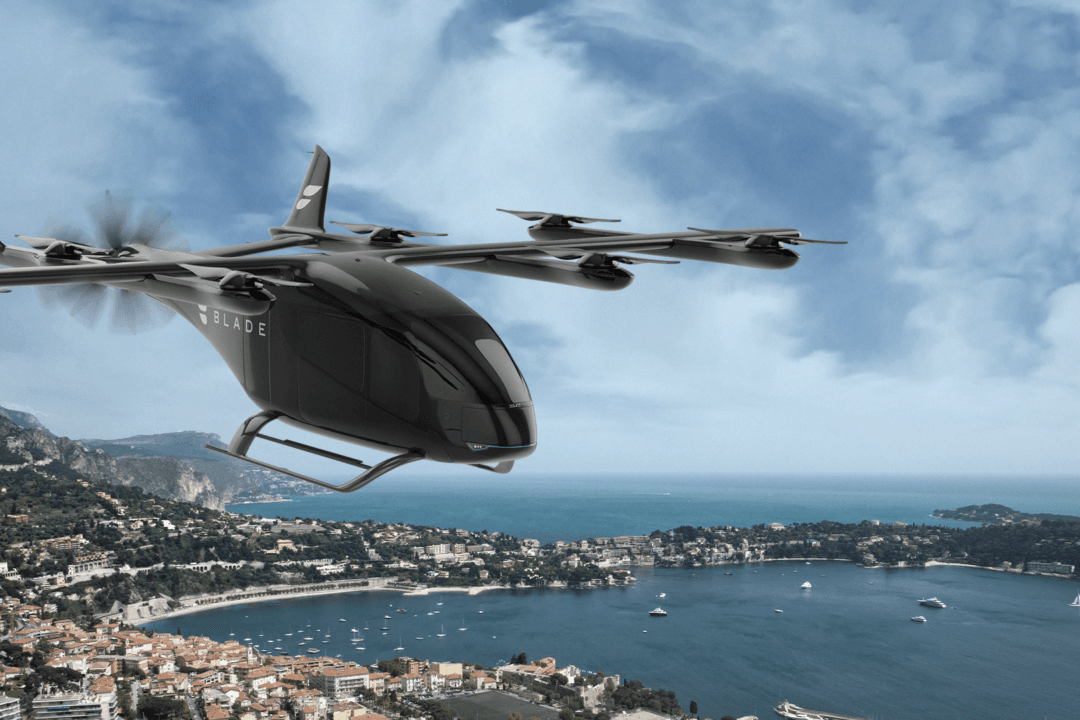Electric air vehicle manufacturer Eve Air Mobility said Monday that it would extend its existing partnership with Blade Air Mobility to integrate its upcoming “flying cars” into Blade’s European route network.
The companies announced their extended partnership at the Paris Air Show held in Le Bourget on Monday, which will integrate Eve’s state-of-the-art electric vehicle take-off and landing (eVTOL) vehicle—dubbed a flying car—into Blade’s European network.





